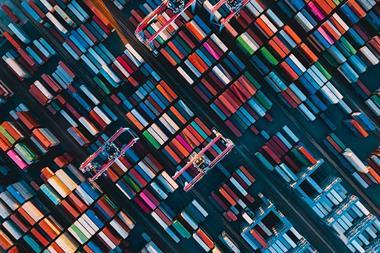
Tariff tension between the European Union and China has flared up again, but global trade needs to be protected during any negotiations to safeguard economic growth amongst other reasons.
Europe and China find themselves once again in the midst of a tariff dispute. This is not the first time tensions have flared.
In 2013, the European Union accused China of price dumping for solar modules and introduced punitive tariffs on those imports. In 2016, the European Union (EU) announced new duties on certain Chinese and Russian steel products, reacting to what it called unfair competition.
In the most recent case, the EU has provisionally imposed sharply higher customs duties on electric vehicles imported from China, arguing that Chinese car companies enjoyed unfair subsidies throughout the production chain.
The additional tariff is between 17% and 38%, depending on the type of electric vehicle and the manufacturer's level to cooperation. The EU plans to make a final decision on the tariffs by November, so negotiations with China are expected to continue for some months.
Until then, companies will not have to pay the tariffs but are required to make security deposits. Meanwhile, China has called the step an act of protectionism, raising the danger of a damaging tariff spiral.
At DHL, we understand that both sides have vested interests in this situation and want to ensure an even playing field for nascent, strategically important products and sectors. However, it is vital for all stakeholders to keep the bigger picture in mind.
The current dispute affects only one aspect of trade between the EU and China. A vast amount of overall EU-China trade remains hugely beneficial for both sides.
Therefore, the negotiations in the coming months should ensure that the conflict does not adversely affect other industries or lead to a broader deterioration of trade relations between the EU and China.
It is concerning that Beijing has already launched an investigation into the EU-imposed tariffs, which could lead to countermeasures targeting EU pork exports, for example.
The controversy surrounding the import of Chinese electric cars to Europe is just another example of the challenges that global trade has faced recently.
To provide a comprehensive view of the state of globalisation, DHL and New York University’s Stern School of Business regularly release the DHL Global Connectedness Report.
Analysing data from 181 countries, the latest edition strongly rebuts the notion that globalization has gone into reverse.
In fact, global connectedness reached a record high in 2022 and remained close to that level in 2023 – despite a series of global shocks over the past decade, including the wars in Ukraine and Gaza, the US–China trade conflict, and the UK's decision to withdraw from the EU. The report highlights that trade growth had a significant role in boosting global connectedness.
Still, it is undeniable that the number of unilaterally imposed trade barriers around the world has increased in recent years. In this environment, it is crucial to remind ourselves of the immense benefits that global trade continues to bring to people and societies.
Just three aspects are:
- Economic growth and prosperity: Global trade remains a driver of economic growth and prosperity. It opens markets, allowing nations and businesses to specialise in areas where they have a comparative advantage – and to utilise this advantage on a larger scale. By facilitating the transfer of technology across national borders, trade enables manufacturers to boost their efficiency with state-of-the-art equipment. This has led to higher quality and lower prices of many consumer goods, particularly benefiting lower-income households.
- Poverty reduction: Trade has undoubtedly played an impressive role in poverty reduction. According to the World Bank, over one billion people have moved out of poverty due to economic growth underpinned by open trade since 1990. In many developing countries, international trade has created new opportunities for small to medium-sized enterprises, women, and workers.
- Peace and stability: Even though it might sound counter-intuitive in times like these, trade can foster peace. Wars such as the ones in Ukraine and the Middle East have challenged this claim, showing that trade cannot rule out armed conflicts. However, evidence suggests that, in the long term, trade has made peace more likely, and that the world would probably be even more volatile without it. Trading stimulates dialogue and encourages economies to lean on rules and norms to settle conflicts, rather than resorting to force. For instance, without business and exchange across borders, it is hard to imagine how reconciliation and decades of peace and prosperity would have been possible in Europe after World War II. At that time, the continent was at a crossroads. Some wanted to de-industrialize Germany and turn it into an agricultural country, to prevent it from waging war again. Ultimately, however, it was the USA's Marshall Plan that enabled peace in Europe – by stimulating trade, promoting interdependence, and fostering mutual economic benefits.
Whenever global trade is under threat, there is a lot at stake, considering the huge challenges we face – from poverty to security to climate change. These global issues demand global solutions. To achieve them, we need cooperation, exchange, and more international trade, not less.
https://www.aircargonews.net/business/supply-chains/supply-chains-brace-for-new-us-china-tariff-war/














